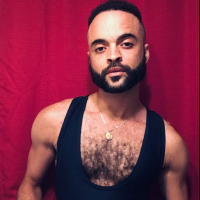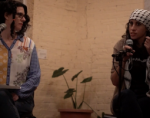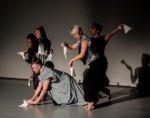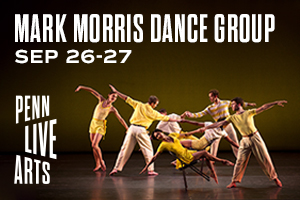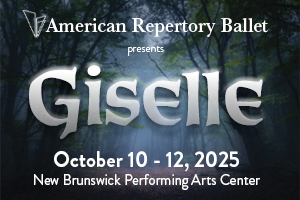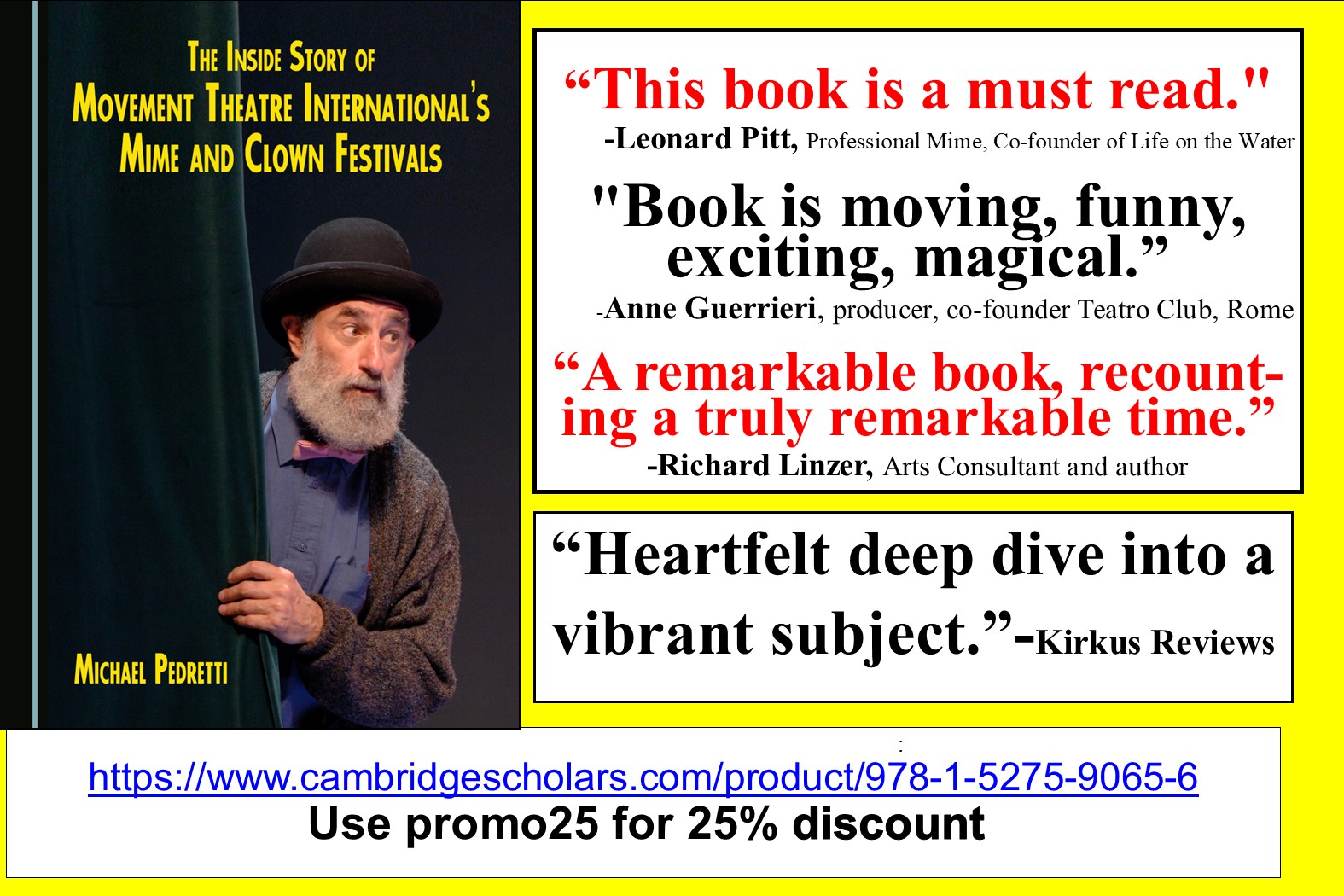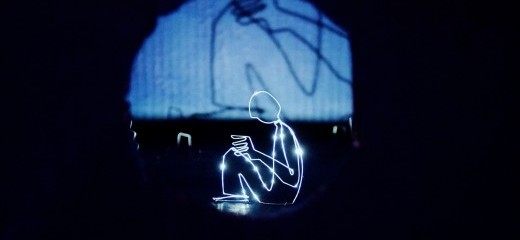
Do you want a Gusher?... my favorite color is William
by Lu Donovan and nikolai mckenzie ben rema
“I don’t eat licorice anymore.”
Lu Donovan: Resentment folding into their crossed arms, Batty Boo refuses Red Ruby Girl’s treat. Her offering is one of gas station snacks; cheese curls, licorice, Gushers, Funyuns… which, of course, are only a maneuver toward Batty Boo’s affection once again.
nikolai mckenzie ben rema: You know that ache, that longing for true intimacy, to be seen and understood? That’s the ever-present force in the background humming in the weighty, tense air of Honey Honey: A Community Film Project.
LD: Produced by Ninth Planet, Honey Honey is a collaborative community project showcasing queer teenage stories. With never-before-had intimacy and devastating first-love-loss spilling from each scene, (ex)lovers Red Ruby Girl and Batty Boo navigate a sudden reunion. Seeing each other for the first time since Red Ruby Girl left their Nebraskan hometown unannounced, the two fall back into each other’s webs of homophobic parents, childhood hauntings, and new partnerships now two years later.
nmbr: Batty Boo is a brooding, intensely sensitive, Scorpio-vibey lone wolf caught in a quicksand job, in a molasses-paced town, with even stickier emotional demons. And after two years of traveling to places that ”don’t look like” Batty Boo—and after their awkward, jumbled kiss—Ruby’s left Batty Boo longing for a piece of home they themselves never had, longing to leave their town with Ruby as they’d planned before Ruby gave chase and abandoned them. As the two try to build back what’s been lost, Batty Boo is in full armadillo mode, protecting the gushy center of their emotional space from Ruby, who uses running away from discomfort to cope with what Batty Boo calls “the vacant lot…where my first home never was.”
“Do you want a Gusher?”
“Sure.”
“Red or Blue?”
“What do you think?”
LD: When Ruby (obviously) still remembers Batty Boo’s favorite flavor, I’ll admit, my heart gushes open. The next cut flashes to Canyon Creek, an old woodsy spot of theirs, where Ruby plays a song (“remember me, remember me”) and casts gazes to Batty Boo’s hoodie-covered fists. I’m drowning in the sap. It’s so sickly saturated and honestly, it’s almost revolting. And yet I do LOVE it in some odd, humbling way.
nmbr: The catalyst for their relationship’s repair is a third brooding character, Speedster Princess, who Batty Boo has begun to fall for in earnest. Princess’ own ghosts of loss and longing hang over their new relationship, provoking Batty Boo to confront their own pride and fresh wounds in order to come to a place of deep catharsis, of softness after so long trying to be tough.
Poignant, sometimes slightly saccharine, but nonetheless impactful, Honey Honey’s many gut punching one liners and nonlinear, spliced storytelling are a reflection of how the work was created. The script was written collaboratively by 17 artists, with contributions from The Attic Youth Center in Philadelphia, some of whom we see in vignettes throughout the movie and again at the end. Ninth Planet combined the submissions they received with the already existing material for Honey Honey to make one film in order to cultivate an ethos of community empathy through storytelling. There’s a malleability of names in the film that lends itself to the film’s central idea that a “coming of age story” is universal. Character portrayals aren’t necessarily tied to one actor; after syncing up the main characters with the actors that play them for the majority of the film, the actors who we see later suddenly change, as if to say, “This person isn’t who you were expecting to see but they know exactly how this feels and don’t front, you know how this feels too.”
I’m reminded of a trans woman I knew in high school who always called me “honey” when she passed me in the halls as she peered into my eyes and saw me, as only those who truly see others do, as if I were one of her own, and just maybe I am?
At times, the b-roll footage of these young people’s submissions seems gimmicky, especially at the film’s chaotic, spirally climax with many overlaid images of memories, cuts to b-roll, and a hazy driving montage. At times, I feel lost between these scenes and the few movement vignettes wedged in here and there. When placed in the context of the larger film though, the compiled anecdotes on loss, losing memories, and the betrayal of best friends blend into the main channel of the film and support the heavy themes upon which it floats.
LD: Wait but, are they making fun of me? Pointing fingers at how the unraveling relationships of my past are in fact quite blasé? Or is that the part that tugs on my heartstrings, apparent too through the interweaving of b-roll community footage, that the hyper-individual queer heartbreak is nothing but a relatable experience?
nmbr: Honey Honey conveys the feeling of forlorn tethering to a feeling of connectedness, that someone dear has left lingering in your shared memory long after you both have separated.
LD: My critical mind wants to question the claim of a “coming of age story,” because what rite of passage can be applied across identity? Even more, “queer” inherently negates a norm, any norm. And yet, Honey Honey gets at all the gayest parts of me. There’s the world-is-ending breakups. The wishing that person still thinks of you when they open a pack of Gushers. The drive, no, the need, to give yourself to another, no matter the repercussions, because, as a young queer, it just feels so good to be seen.
“I hope you’re already forgetting about me.”
Honey Honey: A Community Film Project, Ninth Planet w/ contributions from The Attic Youth Center, YouTube, premiered May 28.
By Lu Donovan
June 16, 2021


